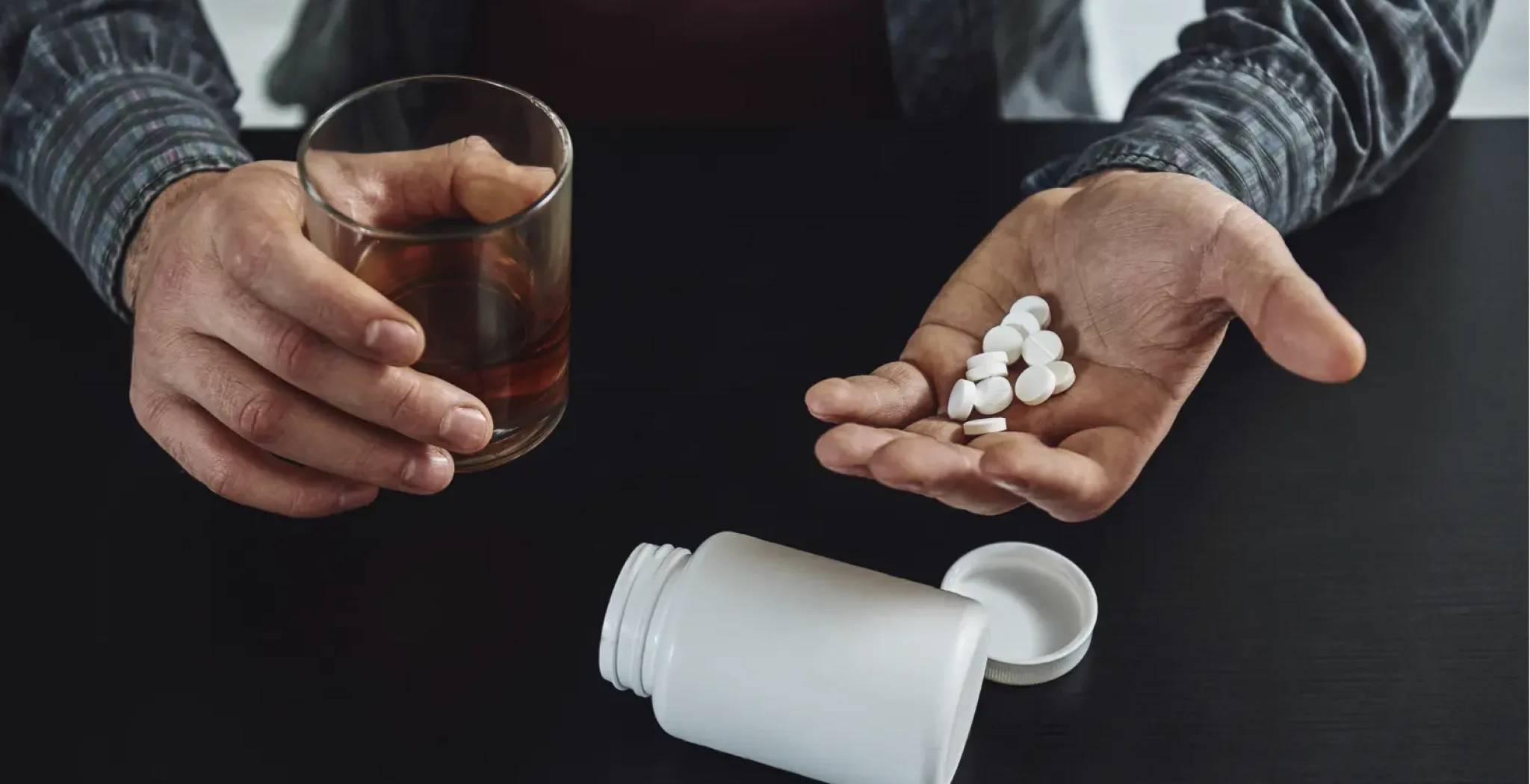Mixing alcohol with prescription medications can cause several potential side effects, some of which can be life-threatening. This is especially true when mixing Klonopin and alcohol. Both are central nervous system (CNS) depressants. Therefore, mixing them may have detrimental, potentially fatal consequences.
Mixing Klonopin and alcohol can have serious side effects and reactions, especially because alcohol may increase the effects of Klonopin. Moreover, alcohol can worsen the patient’s mental illness.
Klonopin is a CNS depressant that helps treat panic disorders and seizures and forms a class of drugs called benzodiazepines. Mixing alcohol and Klonopin increases their depressive attributes, which can cause serious health problems, increasing the illness’s side effects and complications. Addiction treatment is suggested if there is Klonopin abuse. This type of drug abuse can have severe consequences and can lead to Klonopin addiction. A treatment center can sometimes help with the withdrawal and control of substance abuse. Combined with alcohol abuse, the mixture of substances can lead to drug addiction and even death.
Southern California Sunrise Recovery Center provides comprehensive treatment programs for people who struggle with substance use disorder.
What is Klonopin?
Klonopin is an anticonvulsant used to prevent, control, and treat seizures and help depress anxiety symptoms. It is classified in the class of drugs called benzodiazepines. Medical experts prescribe Klonopin to treat panic attacks, anxiety disorders, epileptic seizures, and chronic anxiety symptoms.
As an anticonvulsant, Klonopin also has similar properties to depressants. Similarly, alcohol exhibits properties similar to depressants. Therefore, Klonopin, alcohol, and other benzodiazepine drugs enhance the effects of the Gamma-aminobutyric acid (GABA) neurotransmitter, suppressing nerve activities.
Who Abuses Alcohol and Klonopin?
Anyone can be at risk of abusing alcohol and Klonopin. However, research shows that college students are more likely to mix Klonopin and alcohol.
Some other people who are more likely to abuse Klonopin and alcohol include:
- Single people
- People 25 and younger
- People with a history of excessive drinking
- Those without a high school diploma
People abusing alcohol and Klonopin can stop using the two substances with help from a healthcare provider. A DAWN report showed that:
- Nearly a million emergency department visits involved benzodiazepines alone or in combination with alcohol or opioids from 2005 to 2011
- The risk of a potentially dangerous outcome increases to 24% (opioids) and 55% (alcohol) when combined with Klonopin
Dependence on Klonopin and Alcohol
Patients who develop a dependence on alcohol and Klonopin claim they don’t function the same without using both substances. Klonopin and alcohol withdrawal symptoms can be very debilitating and draining, and their abuse can lead to addiction.
Klonopin and alcohol addiction may lead to a change in the patient’s mood and behavior. However, when the abuse of both substances depends on the following:
- How long the patient has been taking Klonopin and alcohol
- How often the patient takes both substances
- The amount of Klonopin and alcohol consumed
Effects of Mixing Alcohol and Klonopin
As a controlled drug, taking Klonopin puts patients at the potential risk for use and abuse. This is especially true for patients with a history of drug use and dependence. Especially those who also take the drug for extended periods.
Mixing Klonopin with other substances like alcohol may increase the patient’s addiction risks. Therefore, making it more difficult to stop abusing the medication. When taken together, Klonopin and alcohol depress the patient’s CNS functioning and can even be fatal. Depressed breathing, loss of coordination, and increased heart rate are the most common fatal side effects.
While Klonopin alone is a safe prescription medication, healthcare professionals tightly control their dosage. The effects of the drug can be dangerous when the medication is taken outside of the prescribed dose.
Taking too much of the drug can be fatal and exhibit the following side effects:
- A headache
- Blurred vision
- Confusion
- Dizziness
- Drowsiness
- Impaired judgment
- Insomnia and other sleep problems
- Memory and cognitive problems
- Slurred speech
- Vomiting and loss of appetite
Mixing alcohol and Klonopin enhances the side effects of both substances. Patients risk overdose, hospitalization, injury, and even death.
Dangers of Mixing Klonopin and Alcohol
When taken separately, Klonopin and alcohol help users relax and feel calmer. This is especially true for Klonopin, as it reduces feelings of anxiety, allowing patients to function normally.
While using these substances may have positive effects, they can also make the patient dependent on them. There are many dangers of mixing alcohol with prescription medication. Mixing and abusing alcohol and Klonopin elevates the nature of the two substances when used regularly, increasing the likelihood that the patient will depend on one or more substances.
Another dangerous, possibly fatal, side effect of mixing alcohol and Klonopin is that both are CNS depressants. Therefore, consuming them together may result in slowed heart rate and breathing.
When the patient experiences slowed breathing, they may not get enough oxygen to the brain and other body parts. Decreased oxygen may result in coma and stopped breathing or even death. When someone experiences the effects to this degree, it is a Klonopin and alcohol overdose.
Other dangers of mixing Klonopin and alcohol include liver damage, memory loss, and increased risk of injury. The drowsiness caused by mixing Klonopin and alcohol can make waking up more difficult, resulting in a coma.
Finally, the most severe potential danger of combining alcohol and Klonopin is the risk of an accidental overdose. Even taking tiny amounts of both substances may result in an overdose. Signs of alcohol and Klonopin overdose may result in unconsciousness and loss of movement and flexibility.
Getting Treatment for Klonopin and Alcohol Addiction
Abusing alcohol and Klonopin can be incredibly dangerous, possibly fatal. The more the patient uses and abuses these substances, the higher the risk will be that they will experience potentially deadly side effects. Treatment facilities can help people stabilize and provide the support they need to recover.
Patients suffering from alcohol and Klonopin addiction should seek immediate treatment to prevent the possible dangers of mixing both substances. Our inpatient alcoholic treatment program provides holistic, patient-focused treatments and therapy for Klonopin and alcohol addiction.
Southern California Sunrise offers a medically supervised detox program to help individuals safely withdraw from both substances. Our residential programs also provide round-the-clock support for a safe and efficient withdrawal process.
Treat Klonopin and Alcohol Addiction in Southern California Sunrise
Our compassionate and caring healthcare providers at SoCal Sunrise employ behavioral and holistic therapies using evidence-based drug detox. We create a welcoming and supportive environment to encourage advanced patient recovery.Take a tour of our facility or contact us for more information on addiction and free-drug living. Together, we will help you regain control of your life without addiction.






